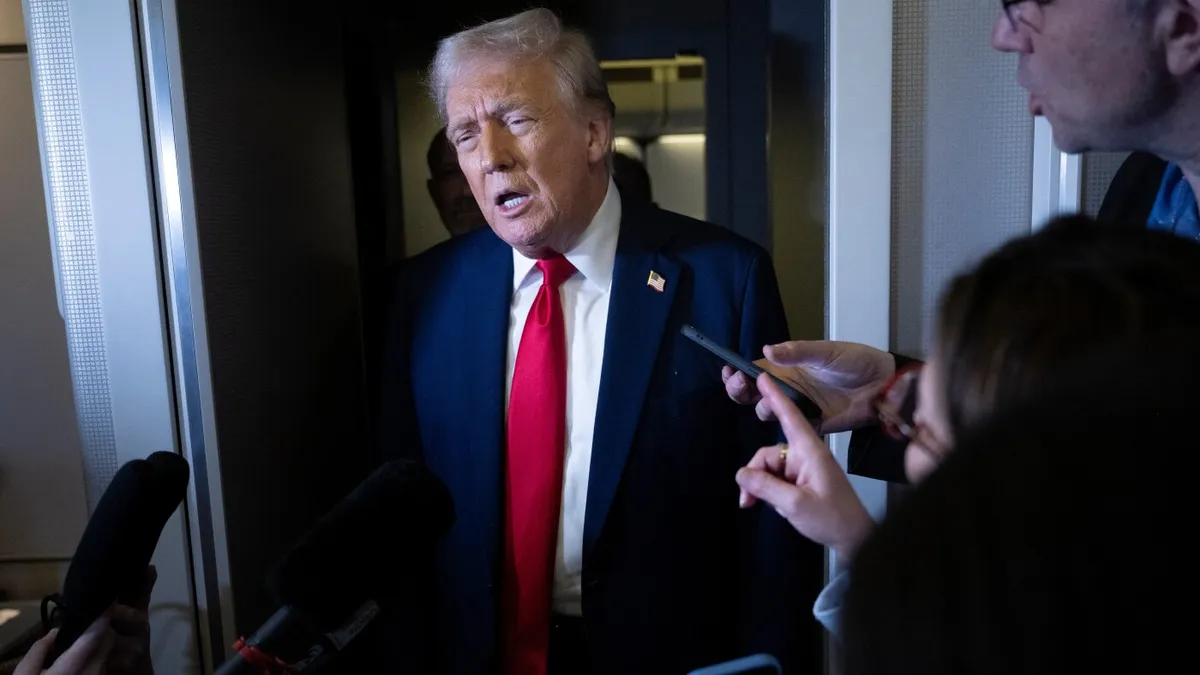
Former President Donald Trump has reignited the discussion surrounding the possibility of a third presidential term, suggesting that there are methods to circumvent the Constitution's presidential term limits. This provocative statement was made during an interview with NBC News, where Trump insisted he was serious about the idea. He hinted at potential strategies that could allow him to serve again, despite the clear restrictions outlined in the 22nd Amendment. As of now, Trump has not confirmed whether he intends to leave the White House after his second term concludes on January 20, 2029.
The 22nd Amendment to the United States Constitution explicitly prohibits any individual from being elected as President more than twice. Ratified in 1951, this amendment was a direct response to former President Franklin Roosevelt's unprecedented four terms during World War II, breaking the two-term tradition set by George Washington. For Trump or any future president to alter these term limits, a new constitutional amendment would require the support of three-fourths of the state legislatures, a daunting task.
Trump's musings about a potential third term are not new. In November, he hinted to a group of House Republicans that he might not run again unless they found a way to support him. This statement prompted swift backlash from Democratic Rep. Dan Goldman, who introduced a resolution to reaffirm that Constitutional term limits apply to Trump, emphasizing that his non-consecutive terms do not provide an exemption.
Legal experts have weighed in on Trump's claims, with many asserting that the language of the 22nd Amendment leaves no room for interpretation. William Baude, a professor at the University of Chicago Law School, argues that the Constitution's wording clearly states that a president cannot be elected more than twice, leaving little leeway for alternative interpretations.
Despite the apparent restrictions, some legal scholars are exploring hypothetical scenarios that could allow for a former two-term president to regain power. For instance, Trump mentioned a scenario involving Vice President Vance, suggesting that if Vance were to take office, Trump could potentially return as president. A 1999 article in the Minnesota Law Review discusses how a twice-elected president could serve as vice president and, under specific circumstances such as the current president's removal from office, could ascend back to the presidency.
Several legal experts have identified potential loopholes in the 22nd Amendment. One such loophole arises from the choice of wording in the amendment, which specifically mentions "elected" officials. This has led to discussions about the eligibility of a former president serving in other governmental roles that could lead to presidential succession, as highlighted by Bruce Peabody, a government and politics professor at Fairleigh Dickinson University.
Historically, there have been whispers about the possibility of a former president returning to power through unconventional means, a topic that has surfaced with past presidents like Dwight Eisenhower and Bill Clinton. Although such discussions often lack serious momentum, the current political climate and Trump's popularity could fuel attempts to exploit these loopholes. Legal scholars like Stephen Gillers have pointed out that while the 12th Amendment poses challenges, the interpretation of presidential eligibility could lead to legal arguments surrounding Trump’s potential return.
If Trump were to pursue a third term, it is highly likely that the matter would end up before the U.S. Supreme Court, raising questions about the court's interpretation of the 22nd Amendment. Gloria Browne-Marshall, a constitutional law professor, highlights that any attempts to bypass constitutional restrictions could lead to instability within the political landscape. With a conservative supermajority in the court, it remains uncertain how the justices would approach a case challenging the amendment.
The timing of Trump’s statements, occurring more than three years before the 2028 election, has raised alarms about the potential need for a new constitutional amendment to prevent a third Trump term. Peabody emphasizes that the nation must be vigilant and proactive if it wishes to maintain the integrity of presidential term limits. As public discourse evolves, the possibility of a constitutional challenge looms large, prompting questions about the future of governance and the rule of law in the United States.